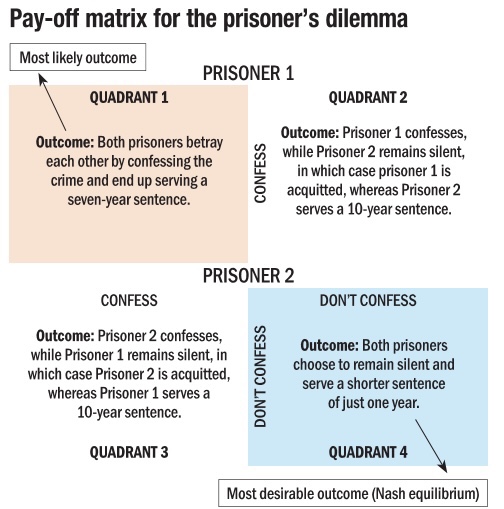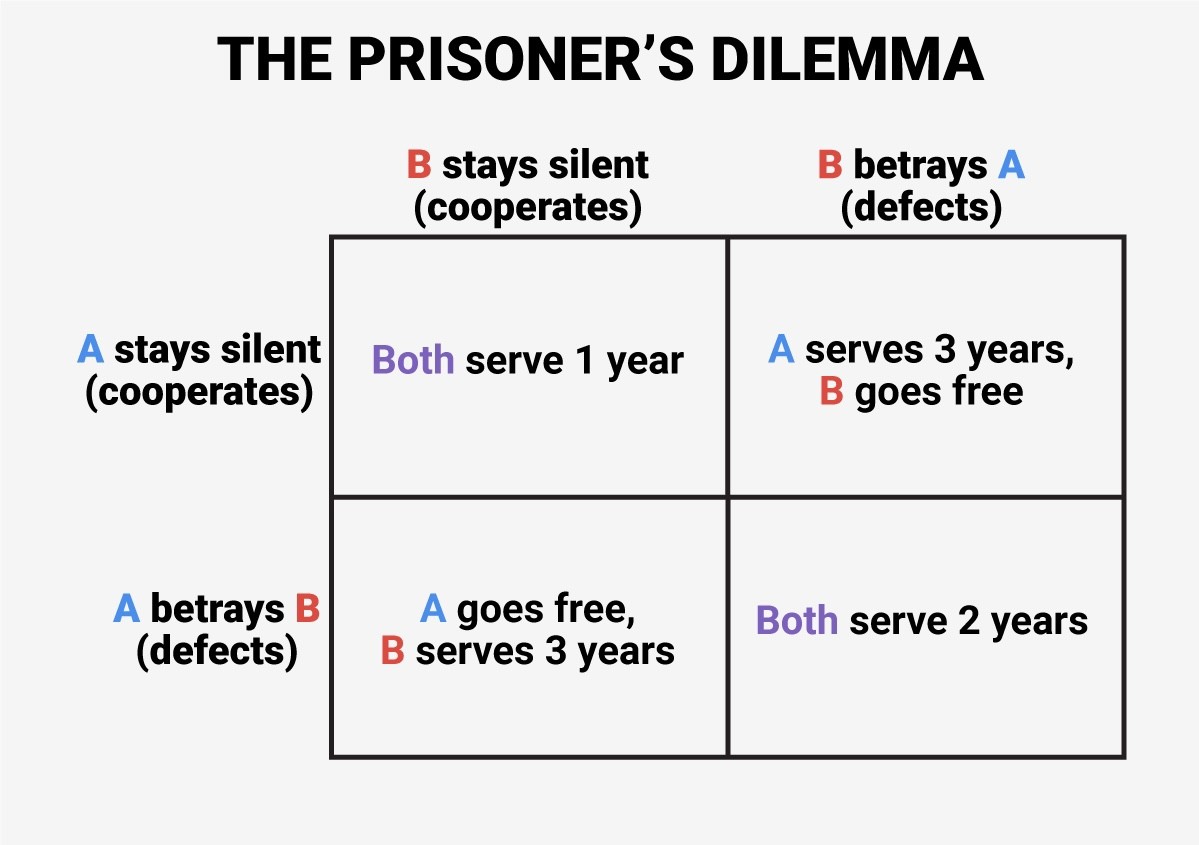THOUGHT' EXPERIMENTS IN PHILOSOPHY, PSYCHOLOGY, AND LOGIC
The Prisoner's Dilemma is a standard example in game theory that shows why two completely ‘rational’ individuals might not cooperate, even if it appears that it is in their best interests to do so..
Two members of a criminal gang are arrested and imprisoned. Each prisoner is in solitary confinement with no means of communicating with the other. The prosecutors lack sufficient evidence to convict the pair on the principal charge. They hope to get both sentenced to a year in prison on a lesser charge. Simultaneously, they offer each prisoner a bargain. Each is given the opportunity either to: betray the other by testifying that the other committed the crime, or to cooperate with the other by remaining silent.
The offer is:
If A and B each betray the other, each of them serves 2 years in prison.
If A betrays B but B remains silent, A will be set free and B will serve 3 years in prison (and vice versa).
If A and B both remain silent, both of them will only serve 1 year in prison (on the lesser charge).
Now, because betraying a partner offers a greater reward than cooperating with him, all purely rational self-interested prisoners would betray the other, and so the logical outcome for two purely rational prisoners is for them to betray each other, although they would get a better reward if they both kept silent.
This tendency towards mutual betrayal from apprehension of the other player’s expected greater reward is the Nash Equilibrium of Game Theory, as applied in Economics, defining the common tendency of competing market forces to even each other out.

Incidentally, this is the same Prof Nash of Princeton University, who got a Nobel prize in economics for his game theory. The famous film "A Beautiful Mind" was made on his life.
Yeshwant Marathe
yeshwant.marathe@gmail.com
(Thanks to Prashant Naik for his inputs)

